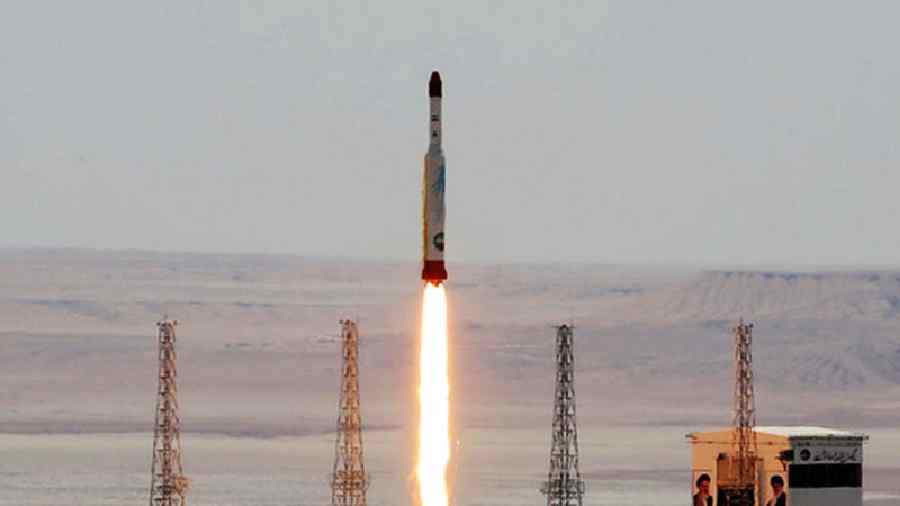Iran's Revolutionary Guard on Saturday launched a new satellite-carrying rocket, the Ghaem-100, seeking to demonstrate the force's space capabilities amid anti-government protests raging across the country.
"The flight test of this satellite carrier with a solid-fueled engine ... was successfully completed," state news agency IRNA reported.
The Ghaem-100, Iran's first three-stage launch vehicle, will be able to place satellites weighing 80 kilograms (176 pounds) in an orbit of 500 kilometers (310 miles) from the earth's surface, IRNA said.
Iranian state TV aired dramatic footage of the rocket blasting off from a desert launch pad into a cloudy sky. The report did not reveal the location.
The US government fears that the same long-range ballistic technology that launches satellites into orbit could also be used to launch nuclear warheads. Tehran has regularly denied having any such intention.
Iran's space ambitions
Amirali Hajizadeh, the commander of the Guard's aerospace division, which developed the Ghaem-100, said the rocket would be used to launch Iran's Nahid satellite for the Telecommunications Ministry.
Iran has one of the biggest missile programs in the Middle East. The country says its satellite program, like its nuclear activities, is aimed at scientific research and other civilian applications.
Over the past decade, Iran has sent several short-lived satellites into orbit and in 2013 launched a monkey into space. The program, however, has had several failed satellite launches in recent years, blamed on technical issues.
Iran successfully launched its first military satellite in April 2020, drawing a sharp rebuke from Washington.
A UN resolution in 2015 called on Iran to refrain for up to eight years from work on ballistic missiles designed to deliver nuclear weapons following an agreement with six world powers.
The announcement of the launch came during the seventh week of mass protests that were triggered by the death of a 22-year-old Jina Mahsa Amini. She had been arrested by the country's so-called morality police for allegedly not complying with the country's compulsory headscarf rules for women, later dying in police custody.
Her death prompted tens of thousands of people to protest against the repressive policies of Iran's government.











